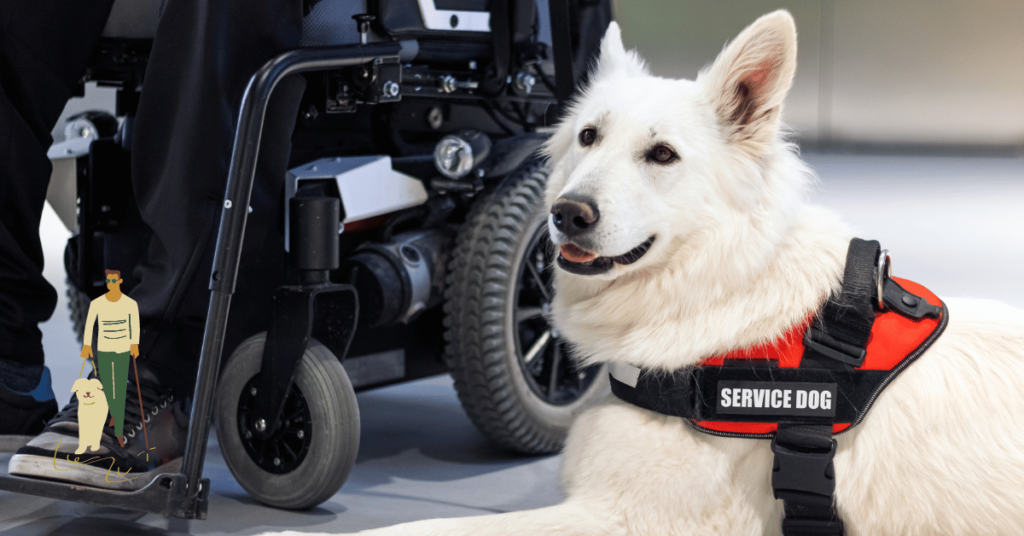For dog owners, navigating the world of pet insurance can be confusing. While most are familiar with pet health insurance, fewer people know about dog life insurance and how it works. Both types of insurance serve different purposes, so understanding their differences is key to choosing the right policy for your furry friend. In this article, we’ll break down the details of pet life insurance and health insurance, and help you decide which coverage suits your needs.
Can You Get a Life Insurance Policy for Your Dog?
Yes, you can purchase life insurance for your dog, but it’s not commonly used by the average pet owner. Dog life insurance, also known as mortality and theft insurance, is typically reserved for working dogs or valuable breeds. For example, show dogs that generate income through endorsements and breeding, or service dogs that are costly to train, may be covered by life insurance. This type of insurance can help reimburse the owner for the value of the dog or cover replacement costs in case of a sudden death or theft.
Life insurance for dogs can also help cover the costs associated with a pet funeral. Whether it’s a cremation or a full burial, these services can add up quickly, and some owners prefer a proper send-off for their beloved pets.
However, for most average dog owners, life insurance may not be a necessity, unless their dog has a significant economic value.
How Does Pet Life Insurance Work?
Pet life insurance functions similarly to life insurance for humans. If your dog passes away due to an accident, illness, or other covered reasons, the insurance provider reimburses you for the value of the dog. This may include the dog’s original purchase price and any lost future income (if applicable), as well as funeral costs like cremation, burial plots, and pet caskets.
Keep in mind that most homeowners or renters insurance policies do not cover the financial loss of a pet. Therefore, if you own a valuable dog or want to prepare for pet funeral expenses, life insurance might be something to consider.
Pet Health Insurance vs. Pet Life Insurance for Dogs

The key difference between pet health insurance and pet life insurance is what they cover:
Pet Health Insurance:
Pet health insurance is designed to cover the cost of veterinary care. It reimburses a percentage (typically 70-100%) of eligible vet bills. There are various types of pet health insurance policies, including:
- Accident & Illness Policies: These cover medical costs related to accidents, injuries, and illnesses such as cancer, chronic conditions, breed-specific issues, and hospital stays.
- Accident-Only Policies: These are less expensive and cover only injuries from accidents, making them a good option for pets that may not need comprehensive care.
- Wellness Plans: These are optional add-ons that cover routine care such as vaccinations, flea treatments, and dental care.
Pet health insurance is widely available and typically recommended by veterinarians. It’s particularly useful for covering unexpected emergency costs or managing the long-term care of a dog with chronic conditions. Some health insurance policies also cover end-of-life care, such as euthanasia, and may offer limited coverage for cremation or burial costs.
Pet Life Insurance:
On the other hand, pet life insurance focuses on the monetary value of the dog itself, rather than medical care. It provides coverage for:
- The replacement value of the dog (especially valuable breeds or working dogs)
- Future income the dog may have generated
- Funeral and burial expenses (caskets, cremation, and cemetery plots)
Life insurance for pets is not as common as health insurance because it tends to apply only to specific scenarios, such as high-value or working dogs. It’s also generally more expensive than pet health insurance and might not offer the practical benefits that most pet owners need.
Is a Dog Life Insurance Policy Worth It?

Whether or not you need dog life insurance depends on your situation. For the average pet owner, life insurance might not be a worthwhile investment. The premiums for pet life insurance can range from $250 to $900 per year, which adds up significantly over the life of a dog. Unless your dog has a high economic value (such as a show dog or service animal), the cost of life insurance may outweigh the benefits.
However, if your dog is a valuable breed, generates income, or holds significant sentimental value, you might want to consider life insurance. This coverage can help you recoup financial losses in the event of an untimely death and provide peace of mind knowing that you’ll be able to cover funeral expenses.
For those primarily concerned with managing veterinary costs and ensuring their dog receives proper medical treatment throughout its life, pet health insurance is likely the more practical and affordable option.
Should You Choose Pet Health Insurance or Life Insurance?
For most dog owners, pet health insurance is the smarter choice. It helps cover the rising cost of veterinary care and ensures that your dog can receive necessary treatment in case of illness or injury without you having to worry about the financial burden.
Pet life insurance, while useful in certain cases, is less commonly needed and often more expensive. If your dog is not a working or high-value pet, pet health insurance offers much more practical and immediate benefits.
Conclusion
Dog life insurance and health insurance serve different purposes, and which one you choose depends on your specific needs. Pet health insurance is a must-have for most pet owners, as it provides financial coverage for medical expenses and emergencies. Dog life insurance, on the other hand, is more suited for valuable, working, or income-generating pets.
Ultimately, the best way to ensure your dog’s health and well-being is to invest in the right insurance coverage. By understanding the differences between life and health insurance, you can make an informed decision and provide your dog with the care and protection they deserve.
So that was all about this article. If you have any further questions feel free to comment down below. We are always here to help you!




